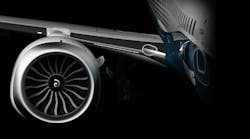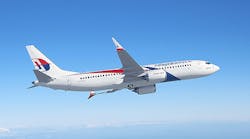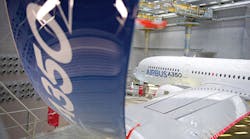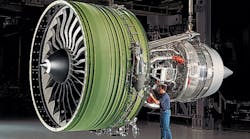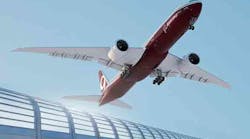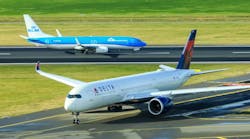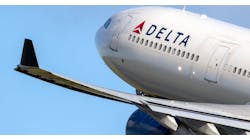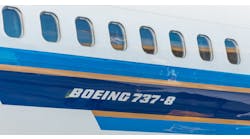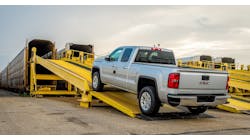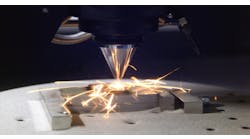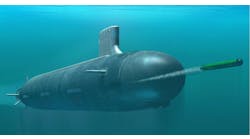Malaysia Airlines Berhad finalized its order with CFM International for a series of LEAP-1B engines to power 25 737 MAX 8 aircraft, an order the carrier placed in July. The engine builder confirmed its contract is worth $630 million at current list prices, and deliveries are scheduled to begin in 2019.
The 737 MAX 8 is one variant of the replacement model for Boeing’s 737 series, which will debut in 2017. To date, Boeing has logged 1,740 orders for the MAX 8, among nearly 3,800 orders for the 737 MAX series in total.
Boeing Commercial Airplanes will supply up to 50 737 MAX aircraft to Malaysia Airlines, a contract that may be worth $5.5 billion at current list prices if all options are fulfilled. The deal is structured as a firm order for 25 737 MAX 8 jets, worth $2.75 billion, plus options for 25 more 737 MAX 8s and MAX 9.
Malaysia Airlines currently has a fleet of 54 Boeing 737-800 aircraft, which are powered by GE Aviation CFM56-7B engines, one of the predecessor designs for the new LEAP engine series.
“We appreciate the trust that Malaysia Airlines has put in us,” stated Chris Drewer, Asia Pacific Sales general manager for CFM International. “We already have an incredibly strong partnership that will only get better with time.”
The LEAP-1B is Boeing’s exclusive choice to power the twin-engine aircraft. It’s a high-bypass turbofan engine with a series of material and design elements intended to reduce weight overall and extend performance life, including 3D-woven carbon fiber-composite fan blades and cases, a novel debris-rejection system, high-pressure turbine section parts formed from ceramic matrix composites (CMCs), fuel nozzles formed by additive manufacturing; and airfoils formed from titanium aluminide.
According to CFM, the reduced weight and higher durability will achieve 15% greater fuel efficiency, with an equivalent reduction in CO2 emissions, and reduced engine noise.
Like its partner in the CFM International joint venture, Safran Aicraft Engines, GE Aviation will build the LEAP engines in its own manufacturing plants.
“We have been very happy with the CFM56-7B engines we operate and believe the new LEAP engine will bring even better operating economics in terms of fuel efficiency with the same reliability we have come to expect from CFM," stated Peter Bellew, group managing director and CEO of Malaysia Airlines.
